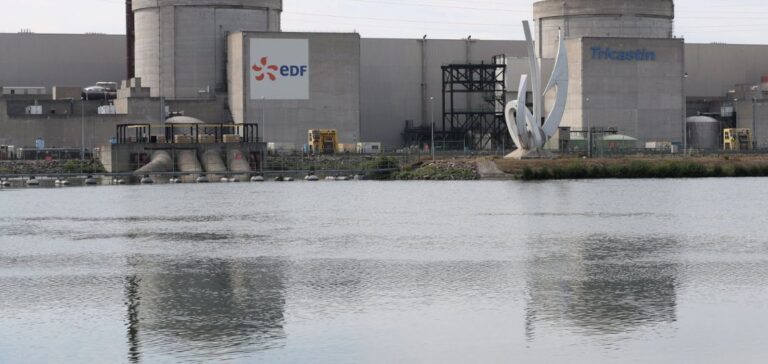EDF plans to reduce output at its Bugey (Ain) and Tricastin (Drôme) nuclear power plants, starting on Saturday and Sunday respectively, due to the heatwave forecast for France, the electricity company said on Wednesday.
Extreme temperatures threaten Bugey and Tricastin nuclear power plants
“Due to high temperature forecasts on the Rhône, production restrictions are likely to affect the Bugey nuclear production site from August 19, 2023,” EDF states in the legal information published on its website.
The same type of message will be broadcast for the Tricastin plant “from August 20”. The Bugey power plant, with its 4 900 MW reactors, had already been the subject of similar messages in July. In mid-July, high temperatures led to the shutdown of the Bugey 3 reactor, for the combined reasons of “environmental constraints and low electricity demand”, according to a spokesperson.
The activity of the power plants, which pump water from adjacent rivers (or from the sea, where applicable) for cooling before releasing it back into the environment at a higher temperature, is governed by thresholds for heating and flow rates in these watercourses that must not be exceeded. These thresholds are specific to each plant and are designed to protect flora and fauna. For several years now, against a backdrop of global warming, droughts and heatwaves have led EDF to adjust its production, sometimes as early as June, to comply with thermal discharge limits.
“An episode of high heat has been affecting the south of the country, particularly the Centre-East, since the end of last week”, warned Météo France on Wednesday, warning that “the heat will intensify over the next few days and gradually spread to other regions”. The public establishment is forecasting “peak temperatures close to 40°C in the Mediterranean south and in the Rhône valley from this weekend onwards”, and expects this new episode to be “the hottest of the summer of 2023”.






















